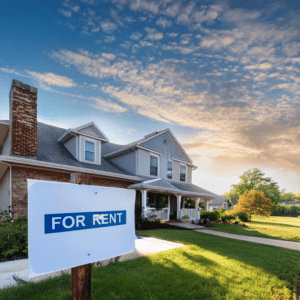Why Landlord-Friendly States Matter
Investing in rental properties means you should understand the local laws and rules for rental agreements. Some states have strict rent control laws, long eviction processes, and limits on fees. These things can change how much profit you make. On the other hand, landlord friendly states have looser rules for rental agreements. This makes it easier for you to manage your properties and go back to regular operations. It helps you get better returns.
Key Factors to Consider
- landlord friendly states: Some states have laws that favor landlords, offering better protections and flexibility when it comes to property management, leases, and tenant relationships.
- Eviction Process: States that have fast eviction processes help landlords manage hard tenants more easily. This is due to state laws and help from law enforcement.
- Rent Control Laws: In states with no rent control, landlords set rental prices based on what the market can support.
- Security Deposits and Late Fees: States that do not limit these fees give landlords more choices.
- Property Taxes: Lower property tax rates help reduce costs and increase profits.
1. Idaho

No Limits on Late Fees
In Idaho, landlords can choose to charge late fees. This practice encourages tenants to pay rent on time. When tenants pay on time, it helps keep money flowing in regularly. Late fees can also help cover extra costs caused by late payments.
No Required Notice for Entry
In Idaho, landlords can go into rental units without telling tenants first. This is different from many other states that do require notice. However, it’s still smart for landlords to inform tenants ahead of time. Doing this helps maintain a good relationship between landlords and tenants.
No Limit on Security Deposits
Idaho does not have a limit on the amount landlords can request for security deposits. This allows you to reduce risks by requesting larger deposits from tenants who have lower credit scores or limited rental history.
Low Property Tax Rate
Idaho has some of the lowest property tax rates in the U.S. This lets you keep more of your rental income rather than giving it to the state. This is particularly clear when you compare it to states that have high property taxes and higher property values.
Growing Rental Market
Idaho’s economy is growing quickly. Cities such as Boise are bringing in many new people. They enjoy the good quality of life, job choices, and low living costs. This rise in population creates a steady demand for rental properties.
Idaho’s population grew by 2.12% from 2020 to 2021, according to the U.S. Census Bureau. This makes Idaho one of the fastest-growing states. The property tax rate in Idaho is around 0.69%. This is lower than the national average of 1.07%, based on reports from the Tax Foundation.
For more information about landlord laws and resources in Idaho, you can go to Idaho.gov.
2. Arizona

Fast Eviction Process
One of the biggest benefits for landlords in Arizona is the fast eviction process. If a tenant doesn’t pay rent, landlords can give a five-day written notice to leave the property. According to Arizona Revised Statutes § 33-1368, this five-day notice speeds up the eviction process. In serious cases, landlords can also use an unconditional quit notice. This helps them manage their properties better and avoid long disputes with tenants.
No Limits on Late Fees and Security Deposits
In states that favor landlords, rules about late fees and security deposits benefit them. These states allow landlords to choose their late fees and security deposit amounts. This helps keep their investments safe and manage risks. Without limits on late fees, landlords ensure rent is paid on time. This steady income is important. Additionally, without rules about the amount for security deposits, landlords can manage issues like damage or unpaid rent better. This flexibility improves the rental environment for landlords. It helps protect their investments and keeps their rental properties financially stable.
No Rent Control Laws
States that do not have statewide rent control laws allow landlords to set their own rental prices and terms. In these states, property owners can change rents based on market needs. They do not have to follow strict rent control rules. This can make a more efficient rental market. By adjusting to supply and demand, landlords can make more rental income. Also, without statewide rent control, they can make better choices about investing in properties and setting rents. This creates a lively and profitable real estate market. Many successful rental property owners like these states because they can earn better returns on their investments.
Low Property Taxes
Low property taxes and insurance rates are very important for states that are friendly to landlords. States with low property taxes can help rental property owners make more money. High property taxes can hurt a landlord’s income, so it is essential to consider this when thinking about rental property investments. To find states that are good for landlords, look for those with the lowest property taxes. This can improve returns on investment and lead to better cash flow.
Strong Job Market
Arizona has a strong economy and plenty of jobs. This is why many people are moving there. Cities like Phoenix and Tucson are growing fast. Because of this, there is a big demand for rental properties.
For more information about landlord laws in Arizona, visit Az.gov.
3. Florida

Florida and North Carolina do not have rent control. This means landlords can change rent prices depending on the market.
If a tenant breaks their lease agreement, landlords in Florida can begin the eviction process immediately.
In Florida, landlords can impose late fees for rent payments that are overdue. There are no state rules limiting how much they can charge. They have the right to choose the penalties for late payments.
Florida’s property tax rates are relatively low.
Growing Population and Strong Economy
Florida’s population is growing because it offers good jobs and a nice lifestyle. Cities like Miami, Orlando, and Tampa are bringing in many new people. As a result, there is a constant need for rental properties. A report from the University of Florida shows that the state’s economy will likely grow by 3% each year for the next five years. This growth comes from the building of the technology and tourism areas. A strong economy means more need for housing, making Florida a good place for rental property investments.
For more information about the landlord laws in Florida, visit MyFlorida.com.
4. Georgia

Georgia does not have rent control or specific eviction laws. This means landlords can change rent prices as they wish based on the current market conditions.
Georgia’s eviction process works well and usually takes less than a month. If necessary, it can involve an eviction lawsuit.
Georgia is similar to other states that support landlords. It does not have limits on late fees or security deposits.
Georgia boasts a low property tax rate.
Georgia has a job market and population that are growing fast. This is a good place for renters. Cities like Atlanta, Savannah, and Augusta are expanding quickly. This development keeps the demand for rental properties stable.
For more information about the landlord laws in Georgia, visit Georgia.gov.
5. Indiana

Indiana has removed rent control laws. This means you can now set rental prices based on how the market is doing.
Efficient Eviction Process
The eviction process in Indiana is fast. It generally takes around three weeks.
In Indiana, landlords can set their own late fees and security deposits. The state does not have any rules that limit how much they can charge for these fees.
Indiana has a relatively low property tax rate.
Growing Population
Indiana’s population is increasing. This growth is creating a steady demand for rental properties. Cities like Indianapolis and Fort Wayne are always growing. This makes it easier to find people who want to rent.
If you want to see all the landlord laws in Indiana, visit [in.gov]().
6. Tennessee

Tennessee does not have rent control. This allows landlords to change rental prices depending on the market conditions.
The eviction process in Tennessee is typically fast. It usually takes around 30 days to complete.
Landlords in Tennessee can decide how much they want to charge for late fees and security deposits. The state does not have any rules that limit these amounts.
Tennessee’s property tax rate is low.
Strong Job Market and Growing Population
Tennessee is becoming a great spot for rental investments. The job market is getting bigger, and more people are moving there. Cities like Nashville and Memphis are seeing strong growth. This one thing means there will be a steady demand for rental properties.
For more information about landlord laws in Tennessee, visit Tn.gov.
States with the Highest Eviction Rates
Understanding the eviction process in South Carolina is very important for landlords. This is especially the case in places with high eviction rates. For example, Virginia and Delaware have a lot of eviction filings, showing that their eviction process is good for landlords. In Virginia, around 13 out of every 100 renter households can face eviction. This issue often happens because of not paying rent and lease violations. High eviction rates suggest a faster process, allowing landlords to reclaim their property easily.
Landlords must also know the average rental income in the state. This helps them see if their investments are smart. It’s important for landlords to understand tenant rights in South Carolina. This knowledge helps them manage rental agreements better.
The eviction process varies a lot from state to state. High eviction rates might look good for landlords. Still, they can also mean a bigger chance of problems with tenants and lease violations. States like Indiana and Texas allow landlords to act quickly against tenants who break the rules, even with high eviction rates. Landlords must find a good balance between the benefits of quick evictions and the need to treat their tenants fairly and legally. This balance helps them manage their properties better.
The Debate: Investment in Only Landlord-Friendly States
When you think about property investment, many real estate investors focus on landlord-friendly states. Some feel that investing in states like Arizona or Florida can lead to higher profits. This is mainly because these states have good laws and low property taxes. However, it is also important to consider the market demand. A landlord-friendly area can make property management easier. Still, you should check if there is a strong rental market to back up your investment.
Investing in places that favor landlords may limit your options. This is especially the case in regions where there are fewer people looking to rent. Investors should find a balance between landlord-friendly laws and a strong rental market to earn good money from their investments. Knowing local laws, market conditions, and the tenants’ needs is essential. This information will help investors make smart choices that align with their financial goals while navigating the challenges of the real estate world.
Conclusion
Investing in a state that helps landlords can make you a better property manager and investor. The six states in this guide are Idaho, Arizona, Florida, Georgia, Indiana, and Tennessee. These states have advantages like high rental rates, easier rules for rents and fees, fast eviction processes, and low property taxes.
Choosing the right state for your rental property investments is very important for your success as a property owner. A great location makes it easier to manage your properties and earn better returns. If you focus on landlord-friendly states, you can benefit from good laws and strong markets. This can lead to long-term success in real estate investing.
If you choose to invest in one of these top landlord-friendly states, you can increase your chances for success in affordable housing investments. These states have helpful legal rules, growing economies, and high rental demand. All of this can make it easier for you to manage your properties.
If you feel stressed or want to change your investments, you can contact EPS Houses. If you are a tired landlord looking to sell or need advice about your next investment, we are here to help you.
Summary Table of Key Features
User text: | State | Rent Control | Eviction Process | Property Tax Rate | Population Growth |
|————|————–|——————|——————-|——————-|
| Idaho | No | Fast | Low | High |
| Arizona | No | Fast | Low | Moderate |
| Florida | No | Fast | Low | High |
Key Takeaways
Idaho has great potential for growth. It offers low property taxes. There are also no restrictions on rent control.
Arizona has a fast eviction process. The state also has a growing job market.
Florida’s economy is getting bigger. A lot of new people are moving there. This makes it a good place for rental investments.
Actionable Steps for Investors:
- Check local real estate trends and property laws in the state you want to know about.
Look into different states to mix up your investments.
Talk to real estate experts. They can help you make plans that suit your needs.
Frequently Asked Questions (FAQ)
Q: What makes a state landlord-friendly?
States that make it easy for landlords to evict tenants, have no rent control laws, and have low property taxes are viewed as welcoming for landlords.
Q: How can I choose the best state for my investment?
A: Consider local market conditions, economic forecasts, and particular laws. Speaking with local real estate experts can provide you with additional insights.
Author Bio
Charles Ebanks is a skilled real estate investor. He has more than ten years of experience in handling properties and investment plans. With a degree in Real Estate Management, he loves to help landlords achieve financial success. Charles provides helpful advice and useful tips through detailed guides and consultations.
What are the most landlord-friendly states in the US?
The most landlord-friendly states in the US are Idaho, Utah, Arizona, South Carolina, Indiana, and Georgia. These states have laws that help landlords. This support makes it easier for them to manage their rental properties and take care of their needs.